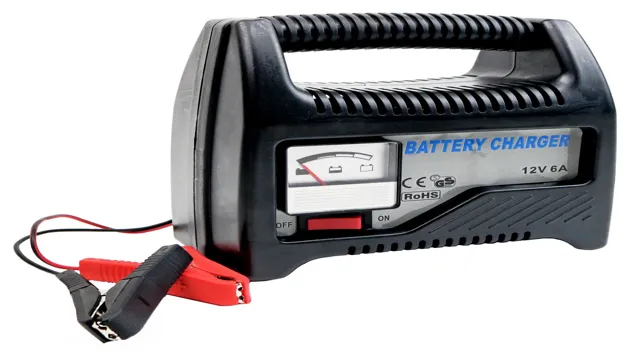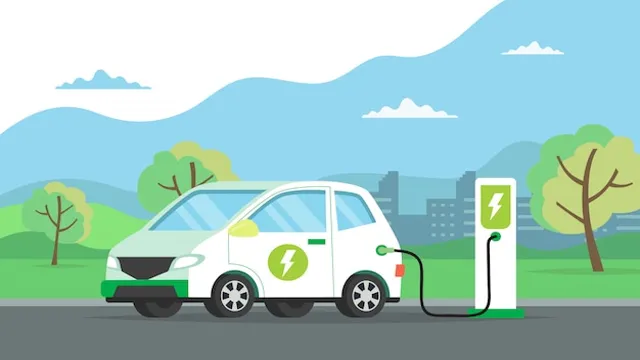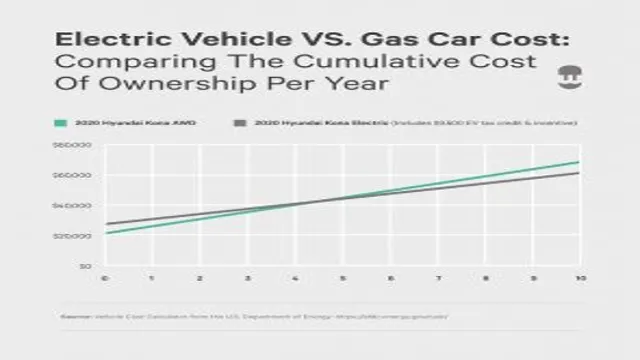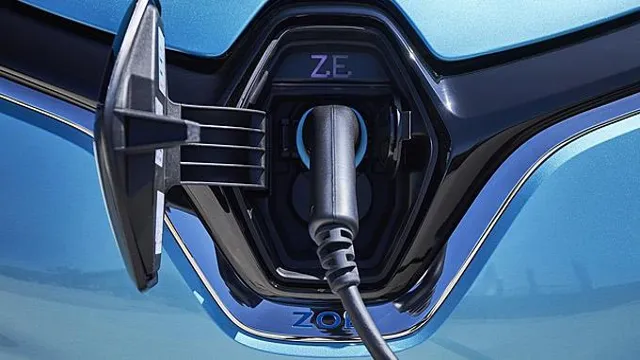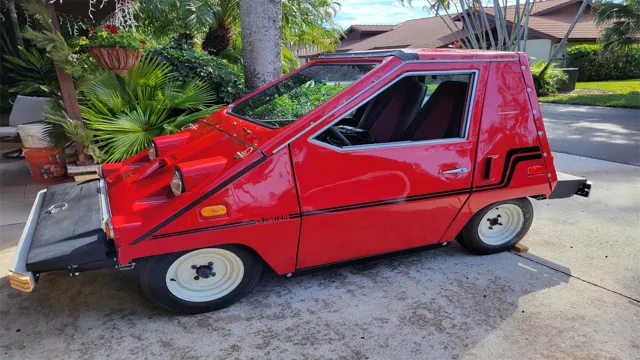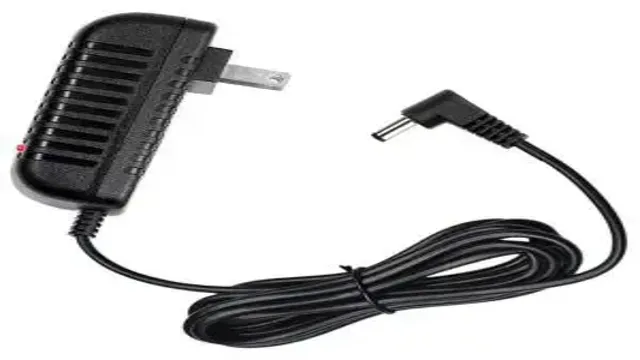Rev Up Your Ride: Unleash the Power of Electric Battery Chargers for Cars
Electric cars are becoming increasingly popular as people become more conscious about their impact on the environment. However, one of the major concerns is the availability of charging stations. This is where electric car chargers come into play.
If you own an electric car or are planning to buy one, you must be aware of electric car chargers and everything that comes with them. From the different types of chargers available in the market to choosing the right charger for your car, this blog covers everything you need to know about electric car chargers. So, sit back, relax, and get ready to recharge your knowledge about electric car chargers!
Types of Electric Car Chargers
Electric battery chargers for cars come in three types: Level 1, Level 2, and DC Fast Charging. Level 1 chargers are the most basic and come as standard with electric cars. They utilize a standard 120-volt outlet and can take up to 20 hours to completely charge an empty battery.
Level 2 chargers require a 240-volt outlet and are faster than Level 1, able to charge an empty battery in approximately 4-8 hours. They are ideal for home installation and can be bought as standalone units or as part of an EV charging station. DC Fast Charging stations are the quickest and can charge a battery to 80% in just 20-30 minutes.
These chargers are usually found at public charging stations and are designed for long trips and quick recharging stops. It’s important to note that not all electric vehicles are compatible with all types of chargers, so it’s best to check with the manufacturer. Overall, the type of electric battery charger you choose will depend on how fast you need to charge your electric car and what your budget is.
Level 1 Chargers: Standard Wall Outlets
When it comes to electric car chargers, there are several types to choose from. One of the most common and readily available options is Level 1 chargers, which can be plugged into a standard wall outlet. These chargers provide a convenient way to charge your vehicle at home without the need for any additional equipment or installations.
However, they are also the slowest charging option, typically taking around eight to twelve hours to fully charge an electric vehicle. Despite their limited charging speed, Level 1 chargers are an excellent choice for those who only need to charge their car overnight and have access to a nearby electrical outlet. Just remember to ensure that the outlet is on a dedicated circuit and can handle the load of the charger.
Overall, while Level 1 chargers may not be the quickest or most powerful option, they are practical and widely available, making them an accessible and popular choice for many electric car owners.
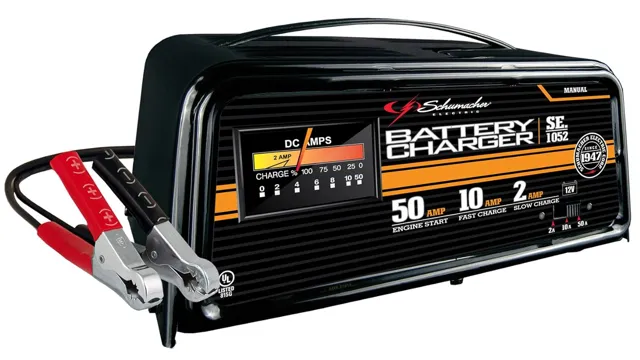
Level 2 Chargers: Dedicated Charging Stations
When it comes to charging an electric car, Level 2 Chargers are the way to go for the fastest and most efficient charge. These chargers are dedicated charging stations that are installed in homes, public parking lots, workplaces, and other locations. They offer a faster charging time than Level 1 Chargers, providing up to 25 miles of range per hour of charging.
With a 240-volt supply, Level 2 Chargers are perfect for overnight charging or for use during the day while you’re out and about. These types of chargers come in different styles including wall-mounted or pedestal-mounted, with various amperages and plug types. Some even have Wi-Fi connectivity, allowing you to monitor your charging status and even start or stop your charge remotely.
Overall, Level 2 Chargers are a great investment for anyone who owns an electric car and wants to maximize their charging efficiency and convenience.
DC Fast Chargers: Rapid Charging
If you’re in a hurry and need to charge your electric vehicle quickly, then DC fast chargers are the way to go. Rapid charging with a DC fast charger can get you up to an 80% charge in under 30 minutes, making it the most efficient charging option available. There are three different types of electric car chargers: Level 1, Level 2, and DC fast chargers.
Level 1 chargers are the slowest and are typically used at home, while Level 2 chargers are a bit faster and can be found in public parking lots, workplaces, and some homes. DC fast chargers are the most powerful and are currently being installed at rest stops, shopping centers, and other high-traffic locations. These chargers use direct current (DC) instead of alternating current (AC) to charge your car’s battery, which allows for much faster charging speeds.
DC fast chargers are a great option for those who regularly take longer trips or need to quickly charge their vehicle to get back on the road.
Factors to Consider When Choosing an Electric Car Charger
If you’re a proud owner of an electric car, then the electric battery charger for cars is undoubtedly a crucial piece of equipment. However, with so many options available on the market, how do you know which one to choose? One of the most critical factors to consider when deciding on a charging station is the charging speed. Faster charging stations are more expensive, but they can save you valuable time in the long run.
Another significant factor to consider is the connectivity type. Different EVs support different plug types, so ensure that you get a charger that is compatible with your vehicle. When choosing a charging station, you should also consider its portability and durability if you often travel with your EV.
Also, research the charging station’s warranty and customer service record to ensure that you can easily contact the manufacturer if you run into any issues. Overall, when choosing an electric battery charger for cars, consider your personal needs, budget, and vehicle specifications to make the best decision.
Charging Speed
When shopping for an electric car charger, charging speed is one of the most critical factors to consider. The charging speed of an electric car depends on several factors, such as the vehicle’s battery size, the charger’s amperage, and the type of connector used. Therefore, depending on your use case, you may want to invest in a higher amperage charger or a different charging connector that offers faster charging speeds.
For example, a Level 2 charger typically provides a charging speed that ranges between 10-60 miles per hour, while a Level 3 charger can offer an impressive 170 miles in just 30 minutes. Ultimately, understanding the various factors that affect charging speed and determining your specific needs can help you decide on the best electric car charger for you.
Portability and Size
When choosing an electric car charger, factors such as portability and size should be taken into consideration. Portability is especially important for those who frequently travel long distances. A charger that is small and lightweight can easily be carried in a backpack or luggage.
It is also important to consider the size of the charger. A charger that is too large may be difficult to store in a vehicle or home, while a charger that is too small may not provide enough power to charge the battery efficiently. It is important to find a charger that strikes a balance between portability and size.
The main keyword used in this article is “electric car charger.” By considering the factors of portability and size when choosing an electric car charger, individuals can find the right charger for their needs and ensure their car is always charged and ready to go.
Compatibility with Your Car
When choosing an electric car charger, it’s crucial to consider compatibility with your car. There are several factors to keep in mind, such as the make and model of your vehicle, the charging speed you need, and the type of charging port your car has. Some cars may require a specific type of charger or have limitations on the charging speed, so it’s essential to do your research beforehand.
Additionally, it’s crucial to make sure the charger you select is equipped with safety features that protect both the car and the charger from damage. Overall, selecting the right electric car charger that is compatible with your car can help ensure a smooth and efficient charging experience, so take the time to find the right one that meets your specific needs.
Top Electric Car Chargers on the Market in 2021
For all electric vehicle owners, having a reliable electric battery charger for cars is essential to keeping your vehicle charged and on the road. In 2021, there are several top electric car chargers on the market that are worth considering. The first is the JuiceBox 40, which is known for its fast charging capabilities and easy installation.
Another option is the ChargePoint Home Flex, which can be customized to work with your individual energy needs and allows for remote monitoring. The Siemens VersiCharge is also a popular option, offering a compact design and compatibility with multiple electric vehicles. No matter which charger you choose, investing in a high-quality electric battery charger for your car will make your travel experience more convenient and efficient.
ChargePoint Home Flex Electric Car Charger
Looking for the top electric car chargers on the market in 2021? Look no further than the ChargePoint Home Flex Electric Car Charger. This charger is designed to be adaptable, with the ability to work with almost any electric vehicle. It offers a maximum charging rate of 50 amps, which can deliver up to 37 miles of range per hour of charging.
Plus, with the ChargePoint app, you can see real-time charging data, manage your charging schedule, and even set reminders to move your car if needed. The sleek design makes it a great addition to any garage or outdoor space. Overall, the ChargePoint Home Flex Electric Car Charger is a reliable, user-friendly option for anyone looking to upgrade their home EV charging setup.
JuiceBox Pro 40 Smart Electric Vehicle (EV) Charger
Electric Car Chargers When it comes to electric vehicle (EV) charging, there are a plethora of options on the market. However, one standout model for 2021 is the JuiceBox Pro 40 Smart Electric Vehicle Charger. This top-of-the-line charger is WiFi enabled, allowing for easy access to charging data and schedules through the JuiceNet app.
It also boasts a 40-amp output, meaning it can charge your EV up to seven times faster than a standard wall outlet. Additionally, its size and portability make it easy to take on the go, perfect for road trips or charging at a friend’s house. The JuiceBox Pro 40 also comes equipped with smart charging features, such as the ability to prioritize charging during off-peak hours for cost savings, and to adjust in real-time based on changes in energy prices.
Overall, the JuiceBox Pro 40 is an excellent choice for those looking for a high-quality, reliable, and efficient electric car charger in 202
Conclusion: Invest in an Electric Car Charger
In conclusion, the electric battery charger for cars is the ultimate sidekick for any green and efficient driver. It’s like having a pocket-sized superhero that can save the day by providing a quick and easy charge for your electric vehicle. With its modern and sleek design, using an electric battery charger for cars is not only environmentally-friendly, but it also makes you look smart and savvy.
So, join the electric revolution and let this cutting-edge gadget help you power up your car and reduce your carbon footprint, one charge at a time!”
FAQs
What is an electric battery charger for cars?
An electric battery charger for cars is a device that is used to recharge the batteries of electric cars.
How long does it take to charge an electric car battery using a charger?
The time it takes to charge an electric car battery using a charger varies depending on the capacity of the battery and the charging rate of the charger. It can take anywhere from a few hours to overnight.
What types of electric battery chargers are available for cars?
There are three types of electric battery chargers for cars: level 1, level 2, and DC fast chargers. Level 1 chargers use a standard 120-volt household outlet and are the slowest but most affordable option. Level 2 chargers use a 240-volt outlet and can charge cars faster. DC fast chargers are the fastest chargers and are typically found at public charging stations.
Can electric cars be charged using a regular electrical outlet?
Yes, electric cars can be charged using a regular electrical outlet, but it is a slow charging method. It is recommended to use a Level 2 charger or DC fast charger for faster charging times.
